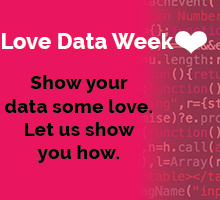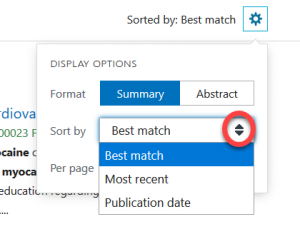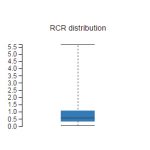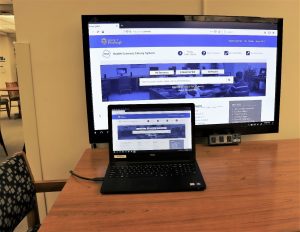 February 10–14 is Love Data Week (#lovedata20). To celebrate, the HSLS Data Services team has 5 simple tips for showing your data love through data management best practices. Contact us with any data related questions. Continue reading
February 10–14 is Love Data Week (#lovedata20). To celebrate, the HSLS Data Services team has 5 simple tips for showing your data love through data management best practices. Contact us with any data related questions. Continue reading
CDC & Pitt Resources for the Coronavirus
The Centers for Disease Control and Prevention’s (CDC) website, 2019 Novel Coronavirus, Wuhan, China, includes the most up-to-date information on this novel virus. You will find information on risk assessment, guidance for travelers, and information for healthcare professionals and laboratories, as well as global and U.S. maps showing confirmed cases of the disease.
You can also find information about the 2019 coronavirus from several Pitt resources:
- Student Health Service
- Office of International Services
- Department of Environmental Health and Safety
- Global Operations Support: 2019-Novel Coronavirus Information
As well as from HSLS’s online resources, including: Continue reading
HSLS Bids Farewell to Three Librarians
Emeritus status was conferred on three retiring HSLS librarians at a ceremony in December. Each of these had a long and distinguished career at HSLS, and will be greatly missed by their colleagues in the library community, and by the many students, clinicians, professors, and researchers whom they served through a combined total of more than 75 years.

Changes to the HSLS Online Collection for 2020
Journals added to the HSLS online collection for 2020 include:
- Currents in Pharmacy Teaching & Learning
- Facial Plastic Surgery & Aesthetic Medicine1 (successor to JAMA Facial Plastic Surgery)
- JCO Clinical Cancer Informatics, JCO Oncology Practice, and JCO Precision Oncology
- Journal of AOAC International1
- Methods of Information in Medicine
- Nature Cancer
- NEJM Catalyst Innovations in Care Delivery1
- Substance Abuse1
- Toxicology Research
- Urology Practice
- Veterinary and Comparative Orthopaedics and Traumatology (VCOT)
- Availability forthcoming.
HSLS continually adds new open-access journals, so visit our E-journals A-Z list and click on “Show Select Subject” to view titles in your area of interest. Forthcoming highlights include Cell Reports Medicine (from Cell Press/Elsevier) and JACC: CardioOncology (from the American College of Cardiology/Elsevier). Continue reading
Latest Enhancements to the New PubMed
The new version of PubMed is set to go live this spring. Several additional enhancements are now available on the new interface.
- Click on the Gear button to format results.
- Change the sort order of results by clicking on up/down arrows in the “Sort by” box. In addition to the default sort order, which is “Best match,” you can also sort by “Most recent” and by “Publication date.” When sorting by the last two options, use the ascending/descending button to show the newest or oldest results first.

- Change the sort order of results by clicking on up/down arrows in the “Sort by” box. In addition to the default sort order, which is “Best match,” you can also sort by “Most recent” and by “Publication date.” When sorting by the last two options, use the ascending/descending button to show the newest or oldest results first.
Treasures from the Rare Book Room: Ludovic Hirschfeld–A Sedulous Anatomist
The career of Ludovic Hirschfeld was a rags to riches story. Ludwik Maurycy Hirschfeld, as he was known in Poland, was born into a poor Jewish family around 1814. His father worked as a ritual butcher in Warsaw. Helping his father, the young boy discovered his interest in anatomy. He delved into medical books, but also pursued studies in music to hide his true dream of becoming a physician. After an unsuccessful attempt to enter medical school in Wroclaw, he left Poland and walked to Paris to pursue this goal. Initially, he supported himself by playing violin and working as a janitor in an anatomy laboratory at the École Pratique de Médicine, but soon found work in the laboratory of the famous anatomist, Professor Jean-Baptiste Marc Bourgery, who quickly came to appreciate his skills in specimen preparations. He promoted Hirschfeld to be his main assistant for dissections. Later, with Bourgery’s help, Hirschfeld began assisting Professor Mathieu Orfila with autopsies. Orfila also quickly noted Hirschfeld’s aptitude, and as the dean of the medical school, helped him enroll in the program. Hirschfeld graduated with a medical degree in 1848, and remained in Paris for the next 10 years. In 1859, he accepted a position at the Medical and Surgical Academy in Warsaw (predecessor of the Warsaw University) where he practiced medicine and taught anatomy until his retirement in 1875. Continue reading
Construction Updates
HSLS Staff News
The HSLS Staff News section includes recent HSLS presentations, publications, staff changes, staff promotions, degrees earned, etc.
Names in bold are HSLS-affiliated
News
Michael Balkenhol, Health Programming Coordinator, NNLM/Middle Atlantic Region, was named the co-lead of the NNLM Public Libraries Initiative. He will also be joining Lydia Collins, Participant Engagement Lead for the Training and Education Center of the All of Us Research Program, as co-lead of the ASGCLA Consumer Health Information Librarians Interest Group.
Publications
B.L. Folb, Public Health Informationist (emerita), M.L. Klem, Research and Instruction Librarian, A.O. Youk, J.J. Dahm, Coordinator of Technology Integration Services, M. He, A.M. Ketchum, Research and Instruction Librarian/Scholarly Communication Liaison (emerita), C.B. Wessel, Head of Research Initiatives (emeritus), and L.M. Hartman, Research and Instruction Librarian (former), published “Continuing Education for Systematic Reviews: A Prospective Longitudinal Assessment of a Workshop for Librarians” in the Journal of the Medical Library Association: JMLA, January 2020, 108(1): 36-46. Continue reading
Classes for February 2020
Painless PubMed, Tuesday, February 4, 10–11 a.m.
Gene Regulation, Wednesday, February 5, 10 a.m.–3 p.m.
Basic EndNote for Macs, Friday, February 7, 11:30 a.m.–12:30 p.m.
Getting Systematic About Systematic Reviews, Tuesday, February 11, 9–10 a.m.
Command Line Basics, Wednesday, February 12, 1–4 p.m.
Managing Data for Comprehensive Lit Reviews: DistillerSR, Thursday, February 13, 10:30–11 a.m.
Bulk RNA-Seq., Wednesday, February 19, 10 a.m.–3 p.m.
Version Control, Thursday, February 20, 10:30–11 a.m.
Painless PubMed, Thursday, February 20, 11 a.m.–12 p.m.
Basic EndNote, Friday, February 21, 10–11 a.m.
PowerPoint for Conference Posters, Monday, February 24, 10 a.m.–12 p.m.
Electronic Research Notebooks: Introduction to LabArchives, Tuesday, February 25, 12–1 p.m.
GEO Data Mining & Pathway Enrichment Analysis w/ Open Access Tools, Wednesday, February 26, 10 a.m.–3 p.m.
Infographics: Sharing Information Visually, Thursday, February 27, 1–2 p.m.
Write Better and Get Published: Health Research Reporting Guidelines
Have you ever started working on a systematic review and someone told you to use the PRISMA guidelines? Or maybe you submitted an article to a journal and you were sent a CONSORT checklist? Or maybe you wanted to publish an article on your study and realized you weren’t quite sure how to organize your paper and what to include? Welcome to the world of health research reporting guidelines!
Even as clinical trial methodology became more structured, reporting on trials was still done on an ad hoc basis. Authors chose what to report; editors and reviewers determined if changes should be made and information added or removed, although there was no formal structure imposed on manuscripts. As a result, published medical studies frequently lacked vital methodology information such as recruitment techniques, participant eligibility criteria, measurable outcomes, length of the trial based on the protocol, time to follow-up, and drug dosages used. Continue reading
Assess Article Influence and Citation Data with NIH iCite
iCite, from the National Institutes of Health (NIH), is a powerful web-based tool that provides bibliometric information for journal articles included in PubMed. Users can analyze single or multiple articles via three modules:
1. Influence:

Delivers scientific influence metrics using the Relative Citation Ratio (RCR). Developed by the NIH, the RCR is a metric that represents the citations/year of a paper, normalized to the citations/year received by NIH-funded papers in the same field and year. For example, a paper with an RCR of 1.0 has the same number of citations/year as the median NIH-funded paper in its field, whereas a paper with an RCR of 2.0 has twice as many citations/year. For more information about how RCR is calculated, read these two articles by B. Ian Hutchins, “Relative Citation Ratio (RCR): A New Metric That Uses Citation Rates to Measure Influence at the Article Level” (2016) and “Additional Support for RCR: A Validated Article-level Measure of Scientific Influence” (2017). Continue reading
Updates to Falk Library’s Technology Spaces
As the Scaife Hall West Wing construction project continues, HSLS continues to focus on optimizing Falk Library’s evolving space for technology use.
 If you’re looking for a large-scale display to preview a presentation or to facilitate group work, you can find a wall-mounted screen with display mirroring capabilities on the library’s upper floor. Connect your laptop to the monitor with an HDMI cable, which can be borrowed from the Technology Help Desk with your Pitt ID. If your laptop doesn’t have an HDMI port, various display adapters are also available to borrow from the Technology Help Desk. In the coming weeks, more screens will be added throughout the library as temporary construction walls come down. Contact the Technology Help Desk with questions or for assistance connecting your laptop to the display. Continue reading
If you’re looking for a large-scale display to preview a presentation or to facilitate group work, you can find a wall-mounted screen with display mirroring capabilities on the library’s upper floor. Connect your laptop to the monitor with an HDMI cable, which can be borrowed from the Technology Help Desk with your Pitt ID. If your laptop doesn’t have an HDMI port, various display adapters are also available to borrow from the Technology Help Desk. In the coming weeks, more screens will be added throughout the library as temporary construction walls come down. Contact the Technology Help Desk with questions or for assistance connecting your laptop to the display. Continue reading
HSLS Staff News
The HSLS Staff News section includes recent HSLS presentations, publications, staff changes, staff promotions, degrees earned, etc.
Names in bold are HSLS-affiliated
News
Melissa Ratajeski, Coordinator of Data Services, has become a Certified Carpentries Instructor. The Carpentries project includes Software Carpentry, Data Carpentry, and Library Carpentry with the shared mission to teach foundational computational and data science skills to researchers.
Publications
J.A. Pruskowski, S. Springer, C.T. Thorpe, M. Klein-Fedyshin, Research and Clinical Instruction Librarian, et al., published “Does Deprescribing Improve Quality of Life? A Systematic Review of the Literature” in Drugs & Aging, December 2019, 36(12): 1097-1110.
N. Shaikh, V.A. Osio, C.B. Wessel, Head of Research Initiatives, et al., published “Prevalence of Asymptomatic Bacteriuria in Children: A Meta-Analysis” in The Journal of Pediatrics, November 28, 2019. Continue reading
Classes for January 2020
Single Cell RNA-Seq, Wednesday, January 8, 10 a.m.–3 p.m.
Painless PubMed, Thursday, January 9, 9–10 a.m.
Pitt Resources for Bioinformatics Data Analysis, Thursday, January 9, 12–1 p.m.
Basic EndNote, Monday, January 13, 10–11 a.m.
Pathway Enrichment Analysis–IPA & MetaCore, Wednesday, January 15, 10 a.m.–3 p.m.
Introduction to Tableau for Data Visualization, Thursday, January 16, 9–10 a.m.
Introduction to Data Management, Tuesday, January 21, 1–2 p.m.
Reporting Guidelines: Transparent Writing Equals Better Results, Thursday, January 23, 10:30–11 a.m.
Painless PubMed, Friday, January 24, 8:30–9:30 a.m.
Advanced EndNote, Monday, January 27, 10–11 a.m.
Advanced PowerPoint for Presentations, Tuesday, January 28, 1–3 p.m.
ChIP-Seq, Wednesday, January 29, 10 a.m.–3 p.m.
From Protocol to Publication: Selecting the Right Reporting Guideline for Your Paper, Study, or Article, Thursday, January 30, 12–1 p.m.

